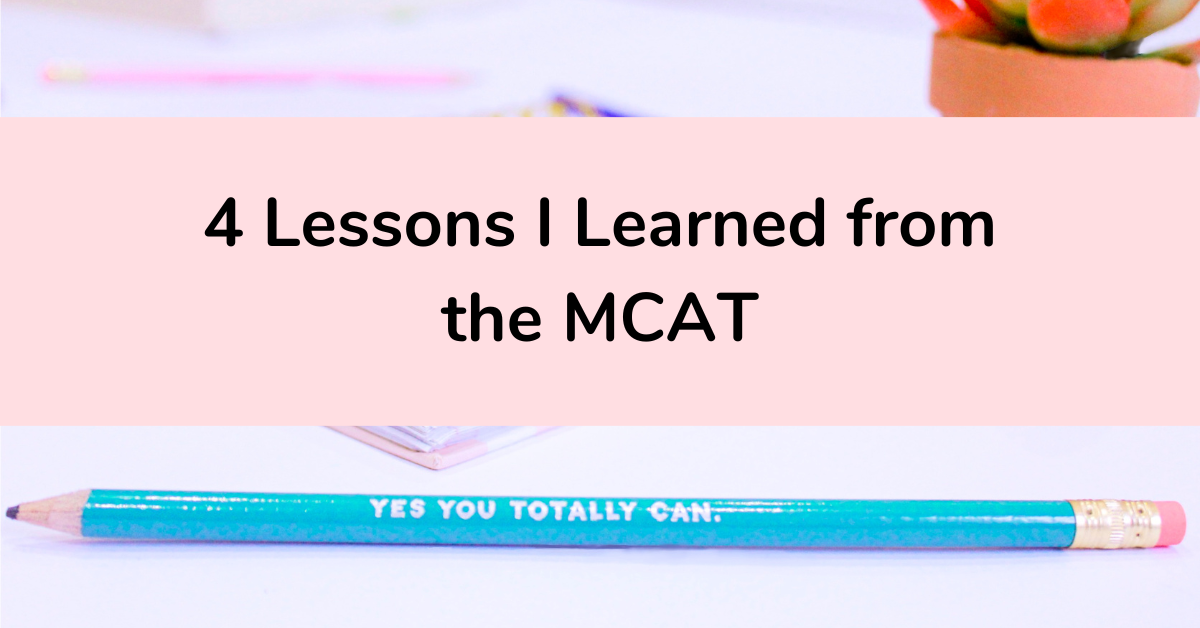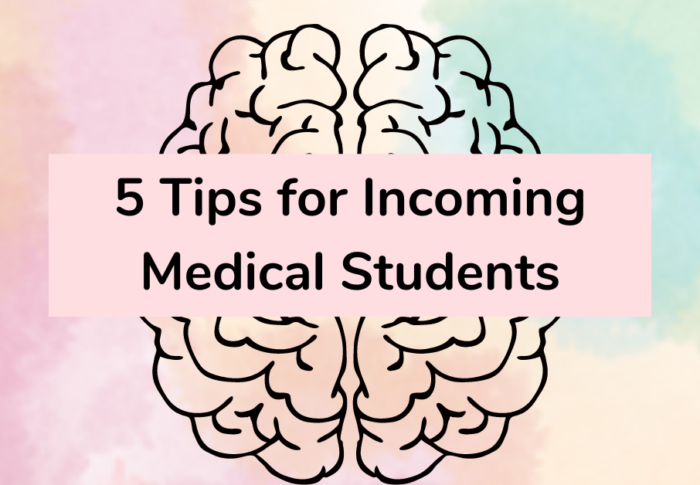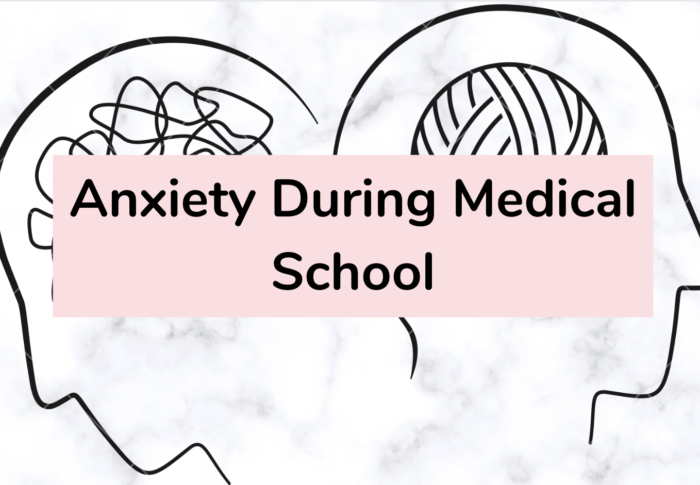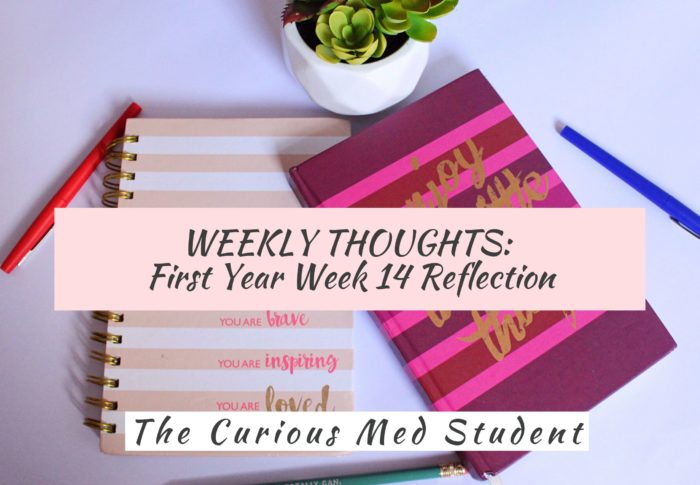
4 Lessons I Learned from the MCAT
I took the MCAT 3 times. It was not a great experience. It was incredibly stressful and I do not wish to go through that specific exam ever again. The MCAT is also unfair because it continues to widen the socioeconomic gap and prevents less privileged individuals the opportunity to attend medical school. There is no way around that.
That being said, the MCAT prepared me for medical school in ways I didn’t expect. Here are a few lessons I took away from my MCAT experience, and what you should try looking for as you study.
Content
The content for the MCAT will prepare you for medical school. In fact, the classes I took for my degree and pre-med requirements provided a fairly strong foundation to build upon during medical school. I also remembered devoting a lot of time into learning some of the MCAT content which made it easier to build on the material in medical school. There were multiple times throughout my first year where I said “Oh, I remember this from the MCAT” and it felt really good to have that foundation.
The best example I have is the hormone ADH in the renal system. For some reason, from MCAT studying, it just stuck with me that ADH increases the aquaporins in the distal tubule so more water is reabsorbed. Quite honestly, I think it might’ve been a question on one of the AAMC practice exams, but during the block I was able to focus my energy on other information instead of trying to memorize that single function for the first time.
That being said, don’t worry if you don’t remember anything from MCAT studying, medical school is all about repetition. The material will show up a few more times, and it will click.
Balance
I did not have any balance while studying for the MCAT. None. Part of it was related to living at home after graduating from my university. However, I also did not take true breaks and I was not taking care of myself. My premed advisor even told me to incorporate balance while studying for the MCAT, but I just didn’t know how to do that. In fact, it took me until my last block of M1 to fully understand how to balance my life.
I have distinct memories of watching the Khan Academy Organic Chemistry videos in the back of my dad’s minivan while heading towards the city for a family outing. Another memory was drawing out biochemical pathways on Fourth of July when my siblings and cousins were watching Stranger Things in the basement and just enjoying life. I regret those decisions now.
I should’ve taken a break instead of trying to stay on top of a schedule that was already pushing my limits. The first time I took the MCAT, I was super burnt out and honestly not sure if I was even a person at that time. The exam itself was not the best experience because I had trouble signing in and out of the exam. For instance, I lost 3 minutes on my CARS because the palm vein scanner wasn’t working with my hand.
In medical school, balance is so important because it is such a long journey. It is different from balancing life with MCAT studying. In hindsight, I wish I practiced it a bit more while I studied for the MCAT.
That being said, it is still challenging for me to balance my academic life with my personal life. I have a tendency to push myself very hard and get close to burn out before realizing I need to rest. For instance, during my last week of M1, I put about 46 hours into studying between Saturday and Wednesday. By Wednesday, I was close to burn out and exhausted. The information was barely sticking, and my body was not pleased. I did my best the following day to stop and take a true break. It’s hard for me, and it might be hard for you. The best thing to do is to be intentional about balancing academic life with personal life.
Study Mediums
My note taking methods prior to medical school were all old school. I was devoted to writing on paper. Even in high school, my public school gave us iPads and I still felt more comfortable writing in notebooks.
With MCAT studying, I discovered I needed to change mediums. There was one point where I had hundreds of notes and diagrams just scattered around my room. I was trying so hard to find the one sheet that had the information I needed. It was eye opening for me. I hated frantically searching through the piles. Even with a binder, it was not the method for me any more.
From that experience, I decided I needed to go digital. I wanted the simple search function that computers and tablets had to offer so I wasn’t wasting time looking for one note. I spent a solid chunk of money on my iPad and associated accessories. It was worth every single penny. I love taking notes on it, and they are neat and organized. I can download PDFs, and search through them to find the information I need.
Not everyone is going to like that method, so use the MCAT to figure out what method works for you. Also, be open to trying new mediums. I was convinced I only liked hard copies of books and notebooks until MCAT studying showed me it was not working any more. I ended up loving digital books and notebooks more than I initially anticipated.
Study Strategies
MCAT studying is what brought Anki to my attention. I knew about spaced repetition and Anki during college, but I didn’t see the fruits of using it until my psych/soc score went up to 130. On top of Anki, practice questions and actually reviewing practice questions was new to me.
Previously, I would look at the question and just glance at the right answer and move on. From MCAT studying, I learned to review each answer choice and why I chose the wrong answer instead of the right answer.
In addition to these two strategies, I learned that I really enjoy active recall and creating sheets of notes. It didn’t last very long for MCAT studying because I couldn’t be organized and it was not feasible during that time. However, for medical school, I love creating sheets of notes because it forces me to go through the information in detail and think what information might be a question on the exam.
Be open to trying different strategies throughout the MCAT. Some strategies may work consistently with all subjects. Other strategies may be specific to anatomy or to physics or to biochemistry. Whatever the case may be, figuring out study strategies during the MCAT will give you some tools to work with during medical school.
Overall, those are the lessons I took away from the MCAT. Studying for the exam is stressful and time consuming. It is also an unfair barrier to some individuals. However, the exam does help prepare you for medical school. You may not remember every little detail, but you will know what information has a strong foundation versus a weak foundation. You will also have an idea of how you will need to study and balance life during medical school.
Did you take the MCAT already? What did you learn from your experience? Let me know in the comments!






